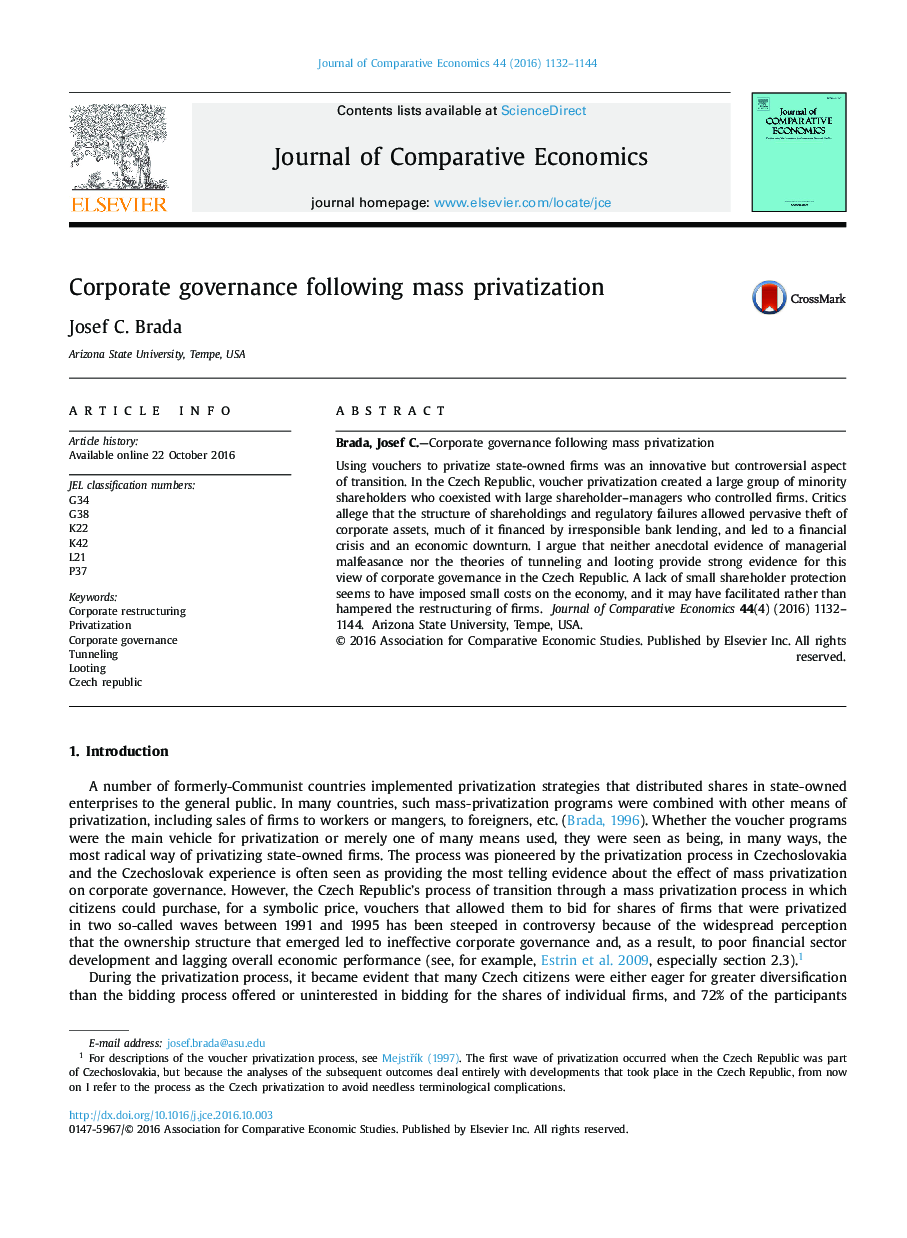| Article ID | Journal | Published Year | Pages | File Type |
|---|---|---|---|---|
| 5092158 | Journal of Comparative Economics | 2016 | 13 Pages |
Using vouchers to privatize state-owned firms was an innovative but controversial aspect of transition. In the Czech Republic, voucher privatization created a large group of minority shareholders who coexisted with large shareholder-managers who controlled firms. Critics allege that the structure of shareholdings and regulatory failures allowed pervasive theft of corporate assets, much of it financed by irresponsible bank lending, and led to a financial crisis and an economic downturn. I argue that neither anecdotal evidence of managerial malfeasance nor the theories of tunneling and looting provide strong evidence for this view of corporate governance in the Czech Republic. A lack of small shareholder protection seems to have imposed small costs on the economy, and it may have facilitated rather than hampered the restructuring of firms.
